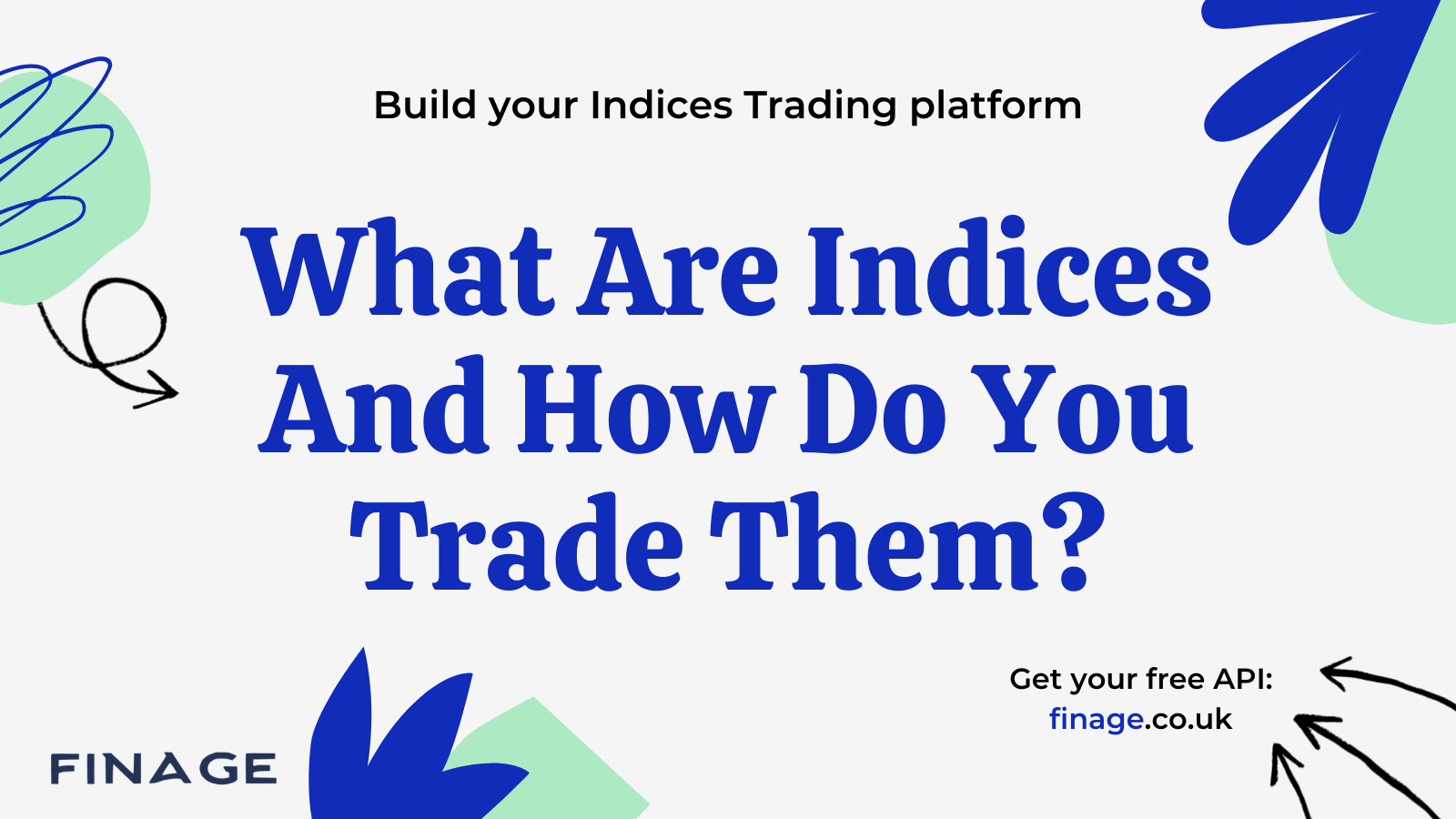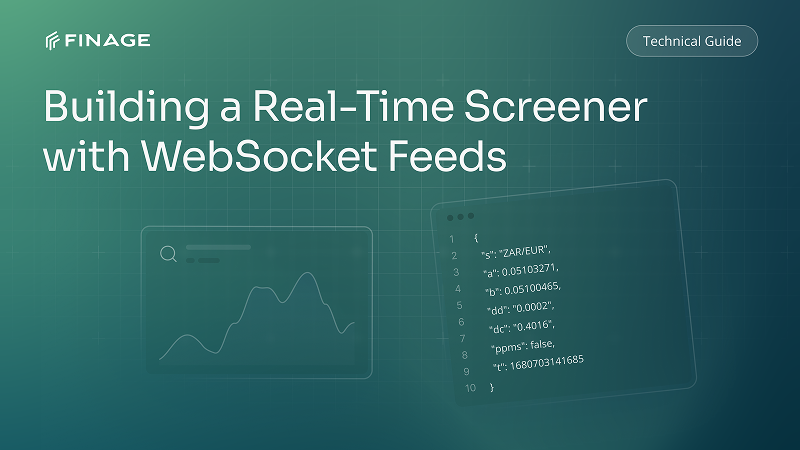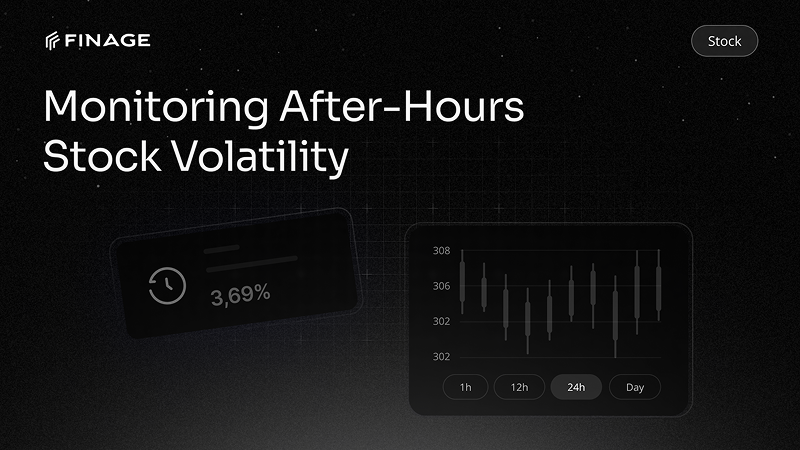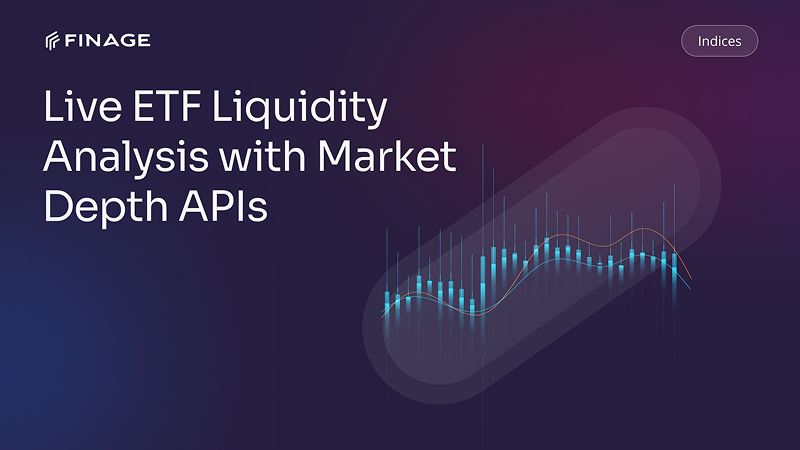What Are Indices And How Do You Trade Them?
5 min read • October 3, 2021

Introduction
In today's blog post, we have mentioned indices, which are a measure of the price performance of a group of stocks in a stock market and the details about it.
Table of Contents
What Are the Indices?
How Are Stock Market Indices Calculated?
What Are the Most Traded Indices?
How Can I Determine What Changes the Price of An Index?
Why Trade Indices?
Conclusion
What Are the Indices?
The measurement of the price performance of a group of shares in a stock market is called an index. For example, the FTSE 100 tracks the 100 largest companies on the London Stock Exchange. Trade indices give you simultaneous exposure to an entire economy or industry while you only have to open a single position. Thus, with CFDs, you can speculate on the prices of rising or falling indices without taking ownership of the underlying asset. Indices are a highly liquid market to trade, and with more trading hours than most other markets, you can be exposed to potential opportunities for longer. Here is our advice to you; Start trading indices today with an IG account.
How Are Stock Market Indices Calculated?
Most stock indexes are calculated by measuring the market value of their component companies. This method gives more weight to companies with larger capital. This means that their performance will affect the value of an index to a greater extent than low-capital companies. However, some popular indices, including the Dow Jones Industrial Average, are based on price. This method gives more weight to companies with higher share prices. This means that changes in their values will have a greater impact on the current price of an index.
What Are the Most Traded Indices?
- DJIA (Wall Street) – measures the value of the 30 largest uncompromised stocks in the US
- DAX (Germany 40) – tracks the performance of the 40 largest companies traded on the Frankfurt Stock Exchange
- FTSE 100 - measures the performance of 100 top-notch companies listed on the London Stock Exchange
- S&P 500 ( US 500 ) – Tracks the value of the 500 largest companies in the US
How Can I Determine What Changes the Price of An Index?
The price of an index can be affected by many factors such as:
- Economic news – investor sentiment, central bank announcements, payroll reports or other - economic events can affect underlying volatility, which can cause the price of an index to move.
- Company financial results – individual company profits and losses cause share prices to increase or decrease, which can effect the price of an index
- Company announcements – changes in company leadership or possible mergers will likely affect share prices, which can have a positive or negative impact on the price of the index.
- Changes in an index's composition – as traders adjust their positions to account for the new composition, weighted indices can see their prices change as companies are added or subtracted.
- Commodity prices – various commodities will affect the prices of different indices. For example, 15% of the shares listed on the FTSE 100 are commodity shares, which means that any fluctuations in the commodity market can affect the price of the index.
Why Trade Indices?
When trading indices with CFDs, you can go long or short. Going long means you are buying a market because you expect the price to go up. Going short means, you are selling a market because you expect the price to drop. With CFDs, your profit or loss is determined by the accuracy of your forecast and the overall size of market movement. CFDs are leveraged products. This means you have to make a small initial deposit known as margin to open a position that gives you much more market risk. When trading with leverage, keep in mind that your profit or loss is calculated using the entire position size, not just the initial margin used to open it.
An investor with a diverse stock collection may short an index to protect themselves from losses in their portfolio. If the market goes down and its shares start to lose value, the open interest value in the index will increase, offsetting the losses in the stocks. But, if stocks increase in value, a short index position will offset some of the profits made. Alternatively, if you have an existing short position in several individual stocks in an index, you can hedge against any price hike risk with a long position in that index. If the index goes up, your index position will make a profit and offset some of the losses from your short stock positions.
How To Trade Indices?
- You can use CFDs to trade indices with IG. CFDs are financial derivatives, meaning you can use them to speculate on both rising and falling indices. It is a contract to change the price difference from the point where the contract is opened to the point where it closes.
- Index futures are generally popular with traders with a long-term market outlook. This is because the overnight funding fee is included, although they have wider spreads than cash indices. Index futures are traded at the futures price.
- Choosing the index that best suits your trading style is crucial here. This will depend on your personal risk-taking, available capital, and whether you prefer short-term or long-term positions. For instance, the Germany 40 is a floating index generally preferred by traders with a high-risk appetite and prefer short-term trading. On the other hand, the US 500 is largely known for its stable returns over time, making it a favorite of traders with a low-risk appetite and long-term outlook. IG offers more than 80 index markets in both major and minor global indices; this means you are more likely to find a market that fits your individual trading style.
Conclusion
In today's article, we talked about indices, which are a measure of the price performance of a group of stocks in a stock market. By reading our article in detail, you can find answers to questions such as what is an index, what are the most traded indices and how does the price of an index vary. We hope that this blog post will be beneficial for you. We will continue to create useful works in order to get inspired by everyone. We are sure that we will achieve splendid things altogether. Keep on following Finage for the best and more.
You can trade Indices in Real-time and historical with Finage free Indices Data API key.
Build with us today!
Claim Your Free API Key Today
Access stock, forex and crypto market data with a free API key—no credit card required.

Stay Informed, Stay Ahead
Finage Blog: Data-Driven Insights & Ideas
Discover company news, announcements, updates, guides and more


